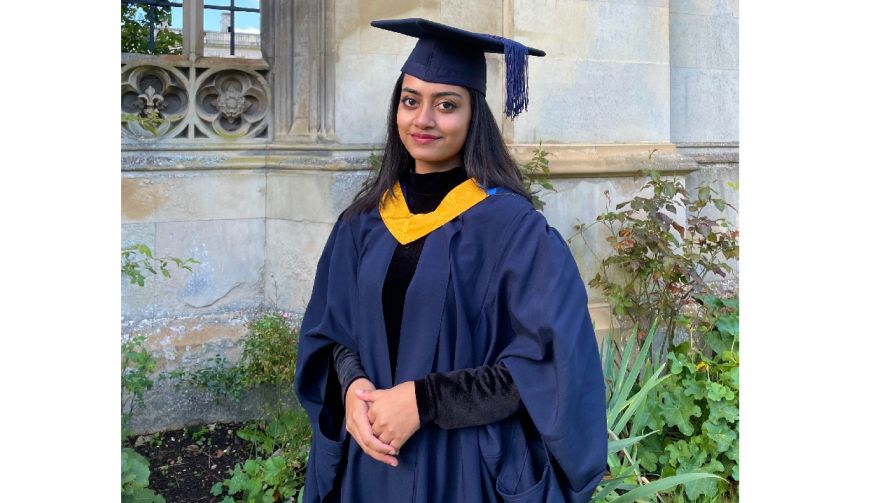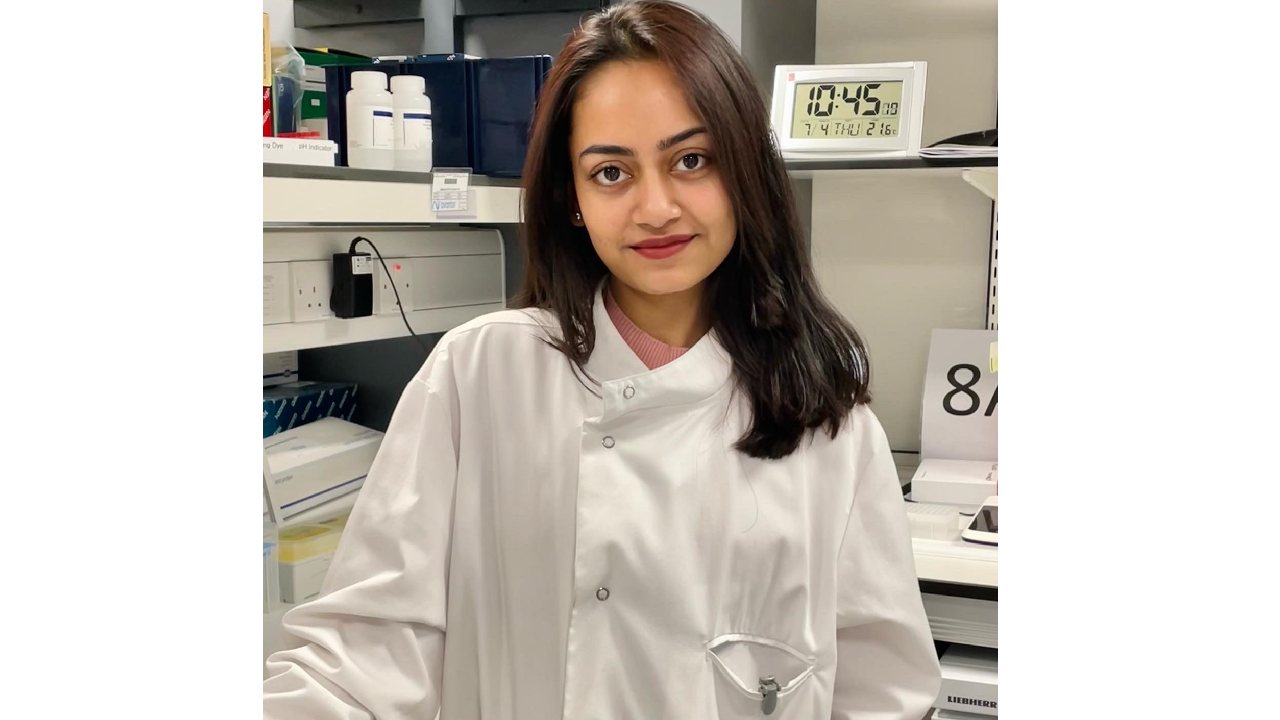Study Abroad: Calcutta girl, Arunima Ghosh shares her journey in the UK


India, which has a population of over 1.2 billion, is a leading contender to send its young people abroad for higher education. Reports state that 3,40,000 Indian students chose to study abroad in just the last year. The benefits of joining a study abroad programme, from enhanced learning and research opportunities to rewarding professions and intellectual development, greatly outweigh the challenges you will inevitably face.
We spoke to Arunima Ghosh, a Kolkata girl, on her experience of studying abroad, the difference between Indian and UK education, challenges she faced & overcame and much more.
1. Did you always know you wanted to study abroad?
Nope, I honestly didn’t plan it. I never wanted to move away from Kolkata. I just thought instead of applying to universities in Kolkata, why not take an IELTS exam. I gave the exam in July, started applying in August and got an offer by September. So everything happened in a blink. But it was worth it.
2. What were you excited about and/or nervous about before you left?
Well, mixed feelings. I was nervous because it was my first time away from home and I haven’t really lived alone before. There was also a massive financial burden that came along with it, and I did not know a single soul living in the UK. But I was also excited at the same time to discover a new place and do everything on my own.
3. What made you choose the UK instead of any other country for your master's?
UK is exceptionally good when it comes to the biotechnology or life-science industry. They invest a lot in R&D as well. That was the major reason why I chose the UK.
4. What was your admission procedure to get into the university? Would you say it was easy or difficult to land a seat?
If I am being completely honest, the process was long and hectic, but if you have the required documentation ready, it gets a lot easier. The university I went to was actually the first one to send me an offer letter, with a scholarship attached, and the tuition fee was much less compared to the other ones I had applied to. I would say the question of landing a seat is tricky and depends on seat availability and merit.
5. What was your experience with the scholarship scene? Do you have any advice regarding the same for students looking at pursuing Masters's education abroad?
Mine was attached to my offer letter so I didn’t have to go all the way to apply for other scholarships. I would, however, advise prospective students to apply for the Commonwealth and Government-sponsored scholarships, as well as the British Council scholarships for girls in addition to any particular university-specific scholarships that may be available.
6. You were a course representative at university, right? What does that mean?
The course representative is someone who acts as an intermediate between the students and the administration of the university. It allows you to communicate efficiently with both and gives you the responsibility to fix things when something doesn’t go as planned.
Read: 5-must follow tips to make your SOP outstanding!
7. You were also an International Buddy for your university. What does that mean and what was your experience like?
When a fresher is coming to join the university from abroad, an international buddy helps them by answering all their doubts and queries. In short, a fresher can reach out to that person on their initial days in the UK. My experience as an International Buddy was quite good actually. It gives a sense of satisfaction to help someone settle in a new country.

8. What were the people like in your programme?
They were very sweet and kind. Nobody cared about your scores or tried to compete with one another. Everyone worked hard and tried to focus on themselves.
9. What do you think is the major difference between the education systems of the UK and India?
Big big differences. I could spot them distinctly because I have studied in India all my life. The UK is more assignment-based, where the focus is on letting students understand the topic and do more self-study on it. It allows you to read more research papers and journals and write things in your own words. There is also an emphasis on quality writing skills and communication skills. India, on the other hand, is more book knowledge and examination-based, where your merit is judged on the basis of how much you can remember and write in a test or exam.
Also, the UK is more course knowledge-based and will take key topics of the course into consideration, but in India, we are sometimes made to study way more than required - which can be both good and bad, at the same time.
10. What are the work opportunities there in the UK for Indian students?
It depends on what you study, to be honest. Business and finance are highly competitive because there are already enough students here competing for a few job openings. So are fashion and arts.
Science jobs on the other hand are easier to get because UK has a shortage of skilled people in that sector. The best thing would be to check the UK occupation shortage list on the government website before deciding to apply here.
Check out the 6 essential tips to make the best of your study abroad experience!
11. How did you budget for your time abroad? Did you spend more or less than you thought? Were there any expenses you weren’t expecting?
I worked part-time in restaurants and pubs for my rent and expenses. I honestly didn’t think about how much is more and how much is less. Some months were more because of dentist appointments and rent deposits. I would say dental is the expense I didn’t expect and it can arise at any time for anyone.
12. What was the hardest adjustment you had to make?
Living away from my parents. I have never spent a night away from home and was very dependent on them for every minute thing. I would say, knowing that you have to feed yourself even when you are sick and tired, is hard. Doing everything on your own, along with a master's and a part-time job, requires immense physical and mental power.
13. What is your current job role? How important are grades/GPA for obtaining a job in this field?
I’m currently a laboratory technician working in cancer diagnostics and research.
I would say grades are the least important thing here, but what matters is your knowledge and compatibility for the role. The interviews here are designed in such a way that they will know about you as a candidate and test your knowledge at the same time. Having said that, companies will also check your merit before providing you with the job role, so you must account for that.
14. Can you share some tips for students aspiring to study abroad?
I would say think it through. Life abroad might look aesthetic and very happening on social media but it is a lot more than that. Think about whether you can take the responsibility and risk associated with it. It will be a roller coaster ride but once you get over it, it will be a pleasant journey. I would also add that it’s worth taking the risk if you know well enough about your course prospects.
15. How would you describe studying abroad in five words?
Happy, free, confused and lonely at the same time. Also rewarding.